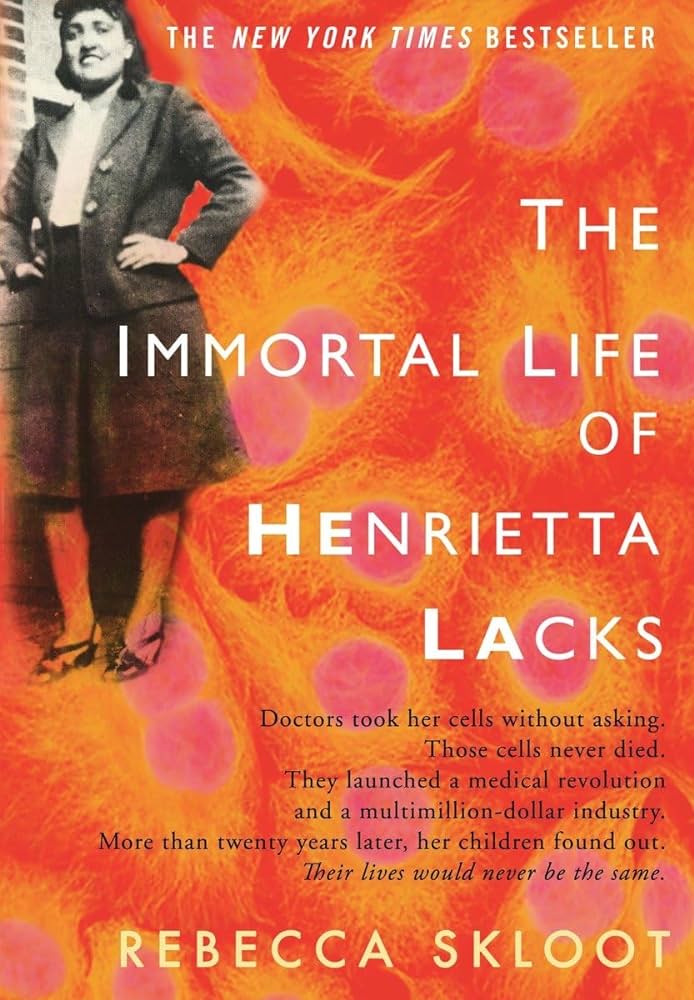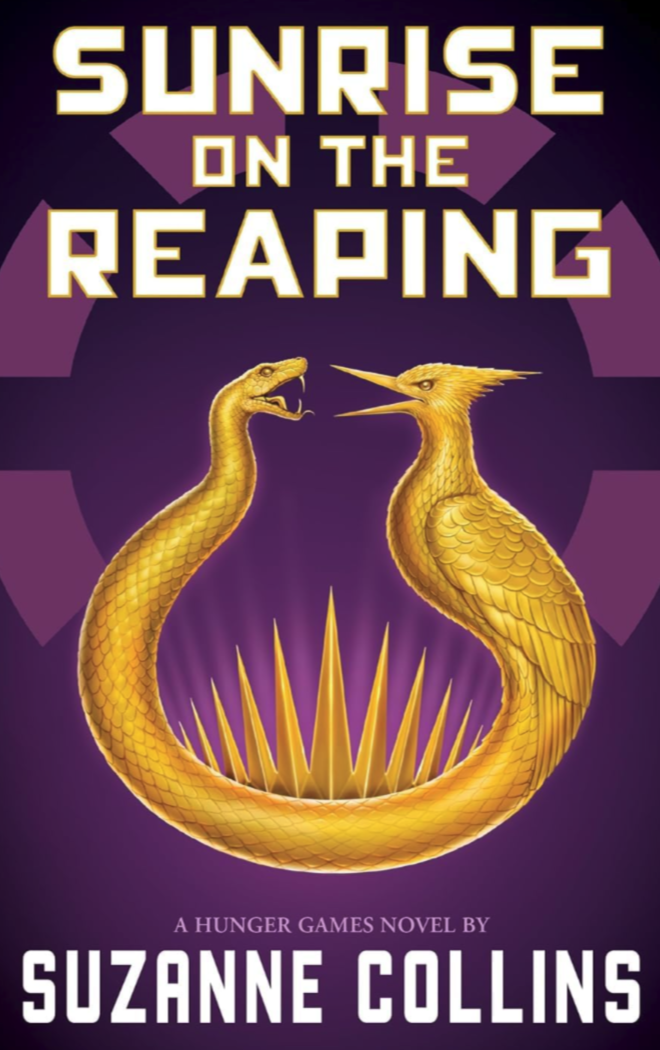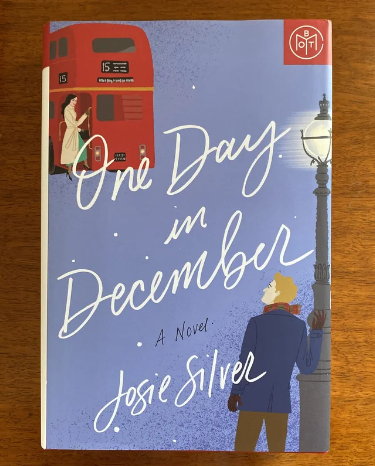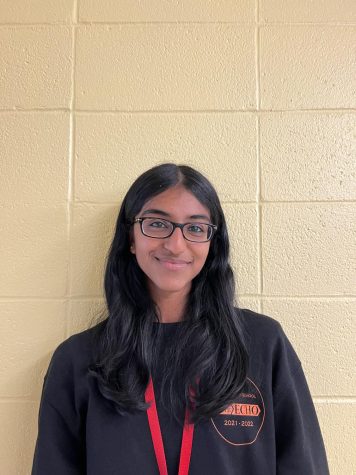We’re Triple C: a dynamic trio of juniors (Kavya, Kailyn, and Anoushka), bonded by both a shared passion for literature and the coincidental charm of all having last names starting with the letter C. Our book review promises a diverse and engaging exploration of exciting books, and we invite fellow book lovers to join us on our literary journey!
“Has anyone heard of Henrietta Lacks?” my biology teacher eagerly asks his AP students. As I look around the room, I see heads nodding uncertainly and hear whispers of students wondering who she is. Some may have learned about her connection to stem cells in their biology classes, while others may have never heard of her. However, Henrietta Lacks’s story is deeper than a simple biology lesson. Her story, celebrated in The Immortal Life of Henrietta Lacks by Rebecca Skloot, is a powerful narrative that intertwines science, ethics, and the lasting influence of a woman’s cells.
Henrietta Lacks was an African-American woman who died of cervical cancer in 1951. During her treatment at The Johns Hopkins Hospital, doctors harvested cells from her tumor without her or her family’s consent. These cells, known as HeLa cells, would grow and become the first immortal human cell lines, revolutionizing medical research and leading to countless scientific breakthroughs. Like many, Skloot first heard about her at 16 years old in a biology lesson at Portland Community College. Fascinated by her life, Skloot ventured on a tireless journey to meet with Lacks’s family, review her medical records, visit the places important to her life, and interview doctors and researchers.
The researchers who managed to grow the HeLa cells in a laboratory were Margaret and George Gey, who were extremely passionate about finding a cure for cancer. They would accept samples from any operations performed by the surgeons working at Johns Hopkins.
When Skloot embarked on researching to create The Immortal Life of Henrietta Lacks as a graduate student in 1999, she had no idea of the enormous journey she was about to undertake. Gaining the trust of Henrietta Lacks’s family was a years-long process, as they had experienced an unforgivable betrayal and exploitation by the medical field. Despite the enormous contributions HeLa cells have made to science, the Lacks family feels that they have been created and left without proper compensation or recognition. Deborah Lacks, Henrietta’s daughter, who was just one year old when her mother died, emerges as a central figure who grapples with the legacy of her mother’s cells and its impact on her own life.
“Truth be told, I can’t get mad at science, because it help[s] people live, and I’d be a mess without it. I’m a walking drugstore!” Deborah Lacks explained to Skloot in the book. “But I won’t lie, I would like some health insurance so I don’t got to pay all that money every month for drugs my [mother’s] cells probably helped make.”
The book’s strength is its ability to humanize scientific discovery, showing how it can deeply affect the lives of individuals and their families. Through the lens of Lacks’s descendants, the author raises important questions about consent, privacy, and the commercialization of science. Even though it belongs to the nonfiction and biography genres—a less popular literary realm that people don’t usually gravitate toward—the story is a truly captivating read that challenges readers to consider the human side of science and appreciate Lacks’s life story that is waiting to be shared.
Keep an eye out for next week’s review! <3 – Kavya

















































































































































